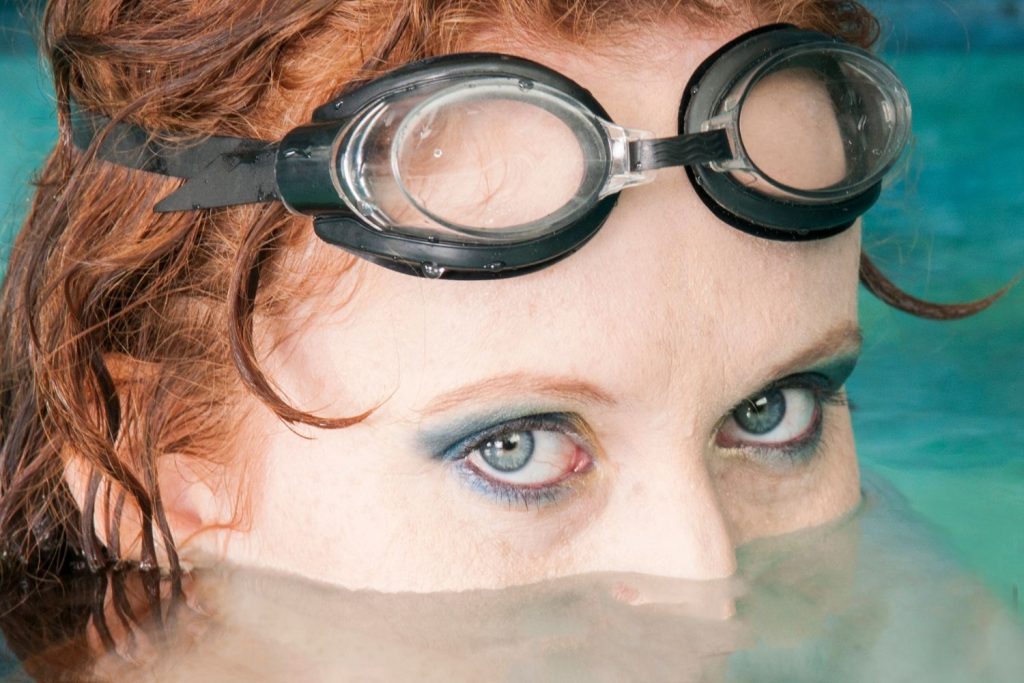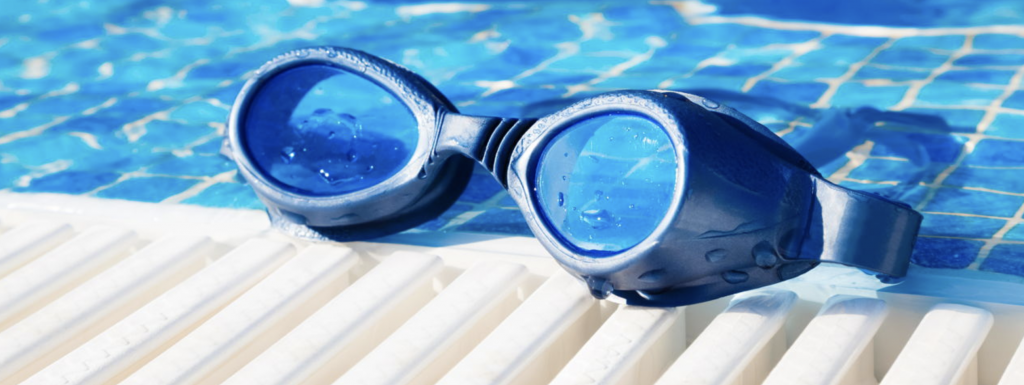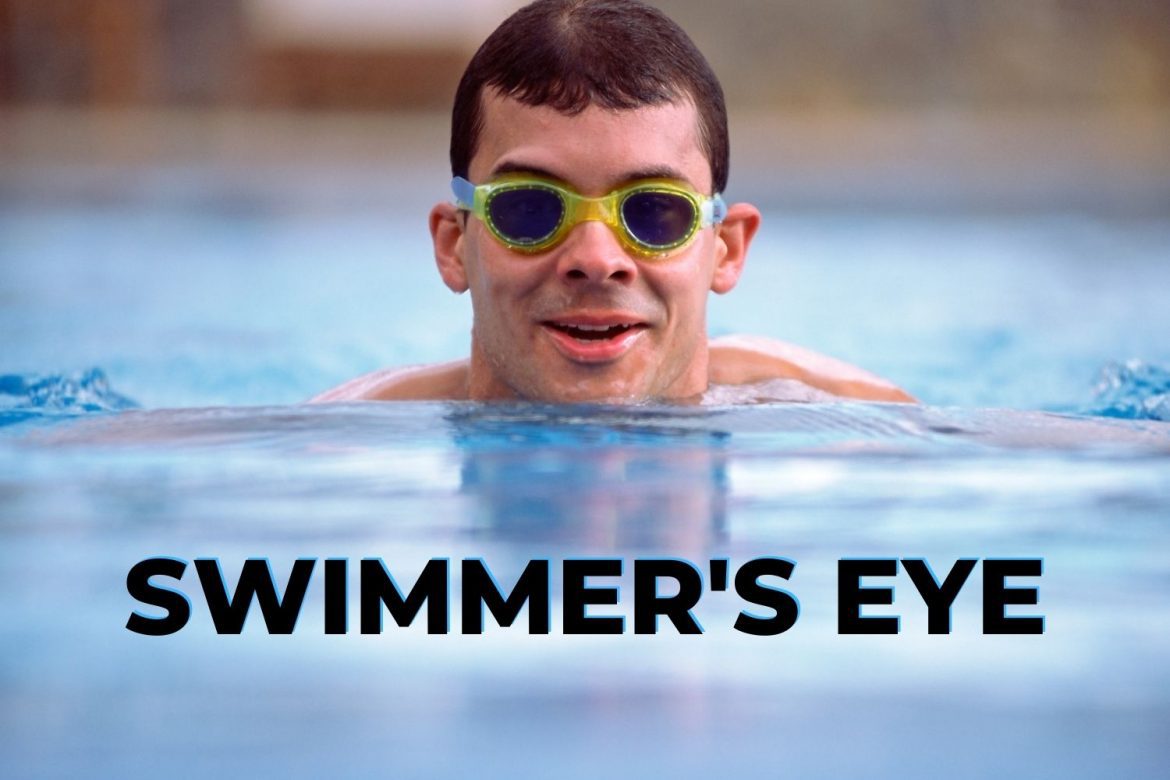![]()
Summer’s here! Fire up the BBQ and get in the pool. Hitting the pool will reset your body temperature—and your mood. It can also be a fun way to get fit.
But what happens if you resurface with red, irritated eyes?
Check out the safety advice below before you venture into the water this summer.
Pool water is not pure
Though swimming pools are refreshing, you should understand contaminants lurk below the surface. Insects, dust, sweat, sunblock, perfume, hair, plasters, and of course urine (disgusting, but true) are just some of the many nasties you can encounter when you submerge into the water.
Chemicals are required to keep a stagnant body of water – a pool – clean from bacteria and other contaminants. Chlorine is the chemical of choice to disinfect pools because it’s excellent at killing harmful bacteria to make the water safe to swim in. Adjusting the pool chemicals to achieve a pH level between 7.2 and 7.8 is recommended by the Centers for Disease Control and Prevention.
Salt water pools are sanitized with salt rather than chlorine tablets. Chlorine is a byproduct of salt so very small amounts can still be found in salt water pools. The low dose of chlorine means salt water pools are generally considered to be more gentle on your skin and eyes.
Pool water can be harsh on your eyes
Your eye has a layer of tears coating its surface referred to as the tear film. This film provides moisture to your eye and contributes to clear vision. It also provides a barrier preventing dust and other contaminants such as bacteria from getting in your eye.
Pool chemicals can wash away this tear film leaving your eyes dry, red and uncomfortable, and expose them to infection. When the tears are no longer intact then any bacteria lingering in the pool can gain easy access into your eye and cause infective conjunctivitis.
There are many causes for conjunctivitis. By definition, it is an inflammation or infection of the conjunctiva and can be triggered by allergies, bacteria, virus, or chemical toxicity. Inflammation causes the blood vessels to enlarge giving rise to a pink eye.
What is swimmer’s eye?
Swimmer’s eye is a combination of dry and irritated eyes caused by toxic chemicals in the water. Symptoms can be in one or both of your eyes and include grittiness, burning or itching, and excessive eye-watering. You can also get swollen, puffy eyelids, redness, light sensitivity, and blurred vision.
Irritants from air pollution or chemical exposure can also result in toxicity-related conjunctivitis.
How to manage swimmer’s eye
Consider these tips:

- Keep well hydrated before and after a swim to keep your eyes moist.
- After a swim, irrigate your eyes with warm clean water to remove any chemical irritants from your eyes, eyelids, and eyelashes.
- You may want to buy and use over-the-counter lubricant eye drops, which will help restore tear film balance and relieve any itching or burning.
- If you have an allergic reaction to chlorine, use anti-histamine eye drops in conjunction with lubricants.
- Apply a tepid compress to alleviate irritation. Close your eye and apply a warm cloth or wheat pack over your eyelids.
- If you wear contact lenses it is advisable to cease wear until the inflammation and irritation has settled.
When should you see your eye doctor?
If your eye is irritated longer than a few hours after swimming you should see your eye doctor. Should your eye or eyes have any discharge, you may have an infection.
Sometimes your vision can become cloudy when you have been in the chlorine for a period of time. The condition is temporary and should improve over a couple of hours. If the clouding persists, again, consult your eye doctor.
How to prevent eye irritation when swimming
To minimize eye irritation when swimming in your pool, begin by ensuring the water’s pH level is well-controlled. This will maintain the required level of disinfection and reduce ocular side effects.
In a public swimming pool you have no control over the chemical levels so additional measures should be considered.
Wear goggles
You’re not a dolphin. Your eyes were not designed to thrive underwater.

Goggles are your best defense against swimmer’s eye. Swimming googles provide a watertight barrier between pool water and the sensitive tissues in your eye. Choose a pair that is the right size for you and forms a good seal around your eyes. You will be able to get guidance at your local swim school. If you normally wear glasses, you can even get a pair of prescription googles made to see clearly in the water.
Contact lenses and swimming
There are risks involved with contact lenses and any type of water, including a pool, hot tub, ocean, lake or river. Even if you wear goggles over your contact lenses you are still at risk of infection. Contact lenses are not designed to be used in water and they can fall out and get lost. Contact lenses can also absorb the water and become swollen and cling tightly to your eye causing irritation and redness. Most importantly, swimming with contact lenses can cause serious eye infection.
Though most bugs that live in water cannot survive in chlorine, some can. Contact lenses provide a nice surface for a contaminant to cling to. The bug can then get under the contact lens onto your eye and multiply rapidly.
Acanthamoeba is the most dangerous of these bugs and is found in most bodies of water. While it doesn’t happen often, acanthamoeba can make its way under the surface of contact lenses and cause serious damage to your eye.
The bottom line: when swimming, leave your contact lenses at home and rely on goggles for your eye protection and water activities.
Remember: “WATER”
When taking a refreshing dip in the pool remember to look after your eyes with this convenient WATER acronym:
- Wear goggles
- Apply irrigation
- Tepid compresses
- Eye drops
- Rehydrate

